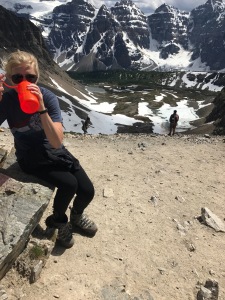
The summer days and months are fleeting. It is already July (gulp!) and I know September is just around the corner. This dissertation update is a reflection on an important lesson I learned (or was reminded of) this past week. Along with two dear friends, my husband and I traveled to Alberta, Canada. Originally, the trip was going to be a “completed dissertation” adventure. I am still plugging along with my project and we decided to adventure nevertheless. We hiked every day, exploring the Canadian Rockies in Banff National Park and K-Country. The landscape was pristine.
On one particular hike (from Morraine Lake, to Larch Valley and Sentinel Pass), I was reminded of an important lesson: focus on one step at a time. Particularly as I have been working on my dissertation, friends and colleagues have often offered supportive encouragement and advice (and I appreciate it very much!). I am certain that this advice has included gentle reminders to tackle challenges as they arise, keep plugging along, and find strength in the knowledge that at some point, you’ll find yourself having completed the PhD.
The hike provided a visceral reflection on my dissertation process. The first part of the hike was challenging but steady and predictable. We readily estimated how long it would take us to cover a certain distance and plugged along. Ahead we could see the sharp switchbacks crossing the slope upward toward the pass. We made good time.
As we approximated the pass, the path narrowed and alternated from being covered with snow to being composed of scree (loose rocks/stones that can cover a mountain slope). I’d take a step and the rocks would slide away. I’d find a good grip, move my foot, and find another good grip. I literally had to think about each single step as I completed it. For a glorious hour, I wasn’t thinking about anything else, except each step.
There are days when I doubt my ability to successfully defend my project. I doubt the topic’s importance and the limitations of the project’s scope. These thoughts don’t get me closer to a finished project and they distract me from the smaller steps that lay ahead. As I take steps forward on my project, challenges will continue to arise, the rocks will fall away and I will have to find a different way to take the next step. However, as I stand on the side of my mountain of academic scree, I know through resilience and sharp focus on each step, I’ll find my way to the pass.
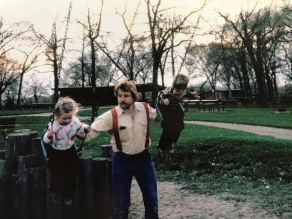

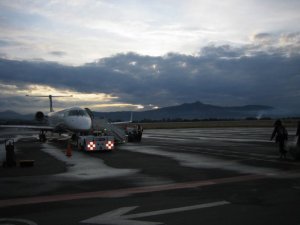
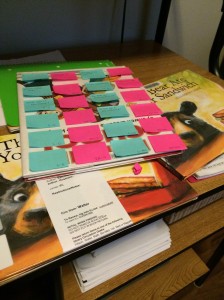
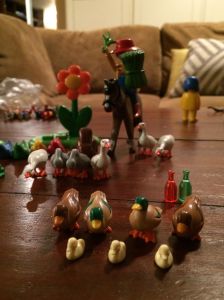
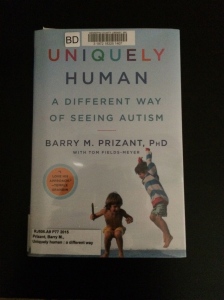
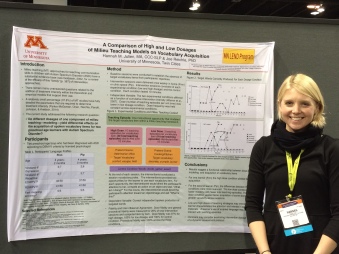
You must be logged in to post a comment.